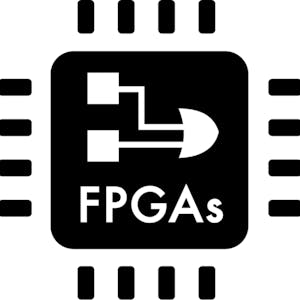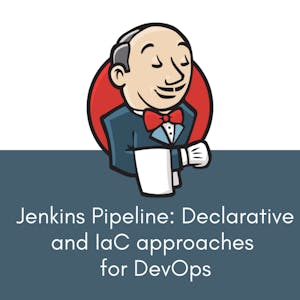FPGA Design for Embedded Systems
About this Specialization
The objective of this course is to acquire proficiency with Field Programmable Gate Arrays (FPGA)s for the purpose of creating prototypes or products for a variety of applications. Although FPGA design can be a complex topic, we will introduce it so that, with a little bit of effort, the basic concepts will be easily learned, while also providing a challenge for the more experienced designer. We will explore complexities, capabilities and trends of Field Programmable Gate Arrays (FPGA) and Complex Programmable Logic Devices (CPLD). Conception, design, implementation, and debugging skills will be practiced. We will learn specifics around embedded IP and processor cores, including tradeoffs between implementing versus acquiring IP. Projects will involve the latest software and FPGA development tools and hardware platforms to help develop a broad perspective of the capabilities of various Programmable SoC solutions. Topics include:\\n\\nVerilog, VHDL, and RTL design for FPGA and CPLD architectures\\n\\nFPGA development tools flow: specify, synthesize, simulate, compile, program and debug\\n\\nConfigurable embedded processors and embedded software\\n\\nUse of soft-core and hard-core processors and OS options\\n\\nFPGA System engineering, software-hardware integration, and testing\\n\\nIP development and incorporating 3rd-party IP\\n\\nThe capstone course will give the learner the opportunity to practice and implement the concepts covered by building FPGA systems based on low cost evaluation boards.Created by: University of Colorado Boulder

Related Online Courses
By the end of this course you will be able to start writing your own Jenkins scripts either in the Jenkins UI or as Jenkinsfile over a multi-stage CD workflow.Created by: Coursera Project Network more
The self-service graphical interface in Amazon Connect makes it convenient for non-technical users to design contact flows, manage agents, and track performance metrics. This course will introduce... more
By the end of this course, you will have a solid grasp of scripting in Ruby. You will be ready to work with DevOps tools that use Ruby. You will be able to begin to read and understand Ruby scripts... more
This is a self-paced lab that takes place in the Google Cloud console. This lab will provide an introductory, hands-on experience with Generative AI on Google Cloud.Created by: Google Cloud more
Introduces to the commands that you need to manage and analyze directories, files, and large sets of genomic data. This is the fourth course in the Genomic Big Data Science Specialization from... more








